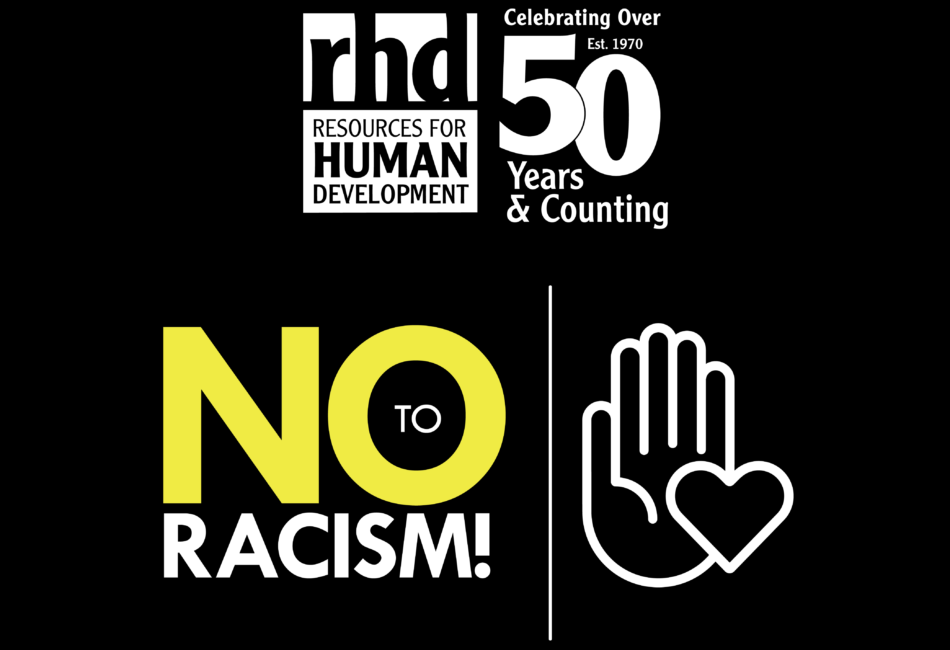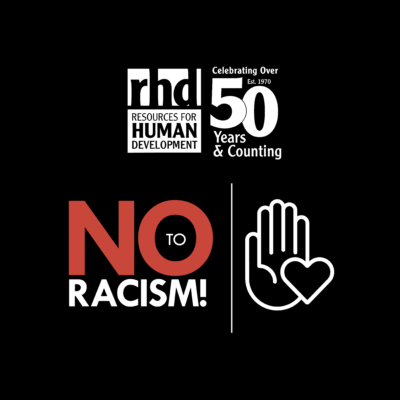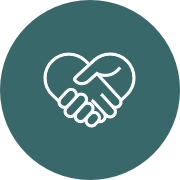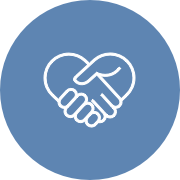Anti-Racism Asian Resources

March 30, 2021
For more than five decades, RHD has been driven by a desire to affect social change, including working to eradicate hate. We take pride in our diversity and exist to benefit all citizens. Our commitment to fighting racial injustice is unwavering. The reprehensible surge in violence against Asian Americans, including the shootings at Asian businesses in Atlanta, must be stopped. If you want to be part of the solution, we’ve compiled a list of anti-racist resources to educate, empower, and inspire social change in support of our Asian American brothers and sisters. Please utilize it and pass it on.
Combating Violence Against Asian Americans & Pacific Islanders: What Can I Do?
- Educate Yourself – Learn about the long history of violence and bias against the Asian American Pacific Islander (AAPI) community and the rise in violence since the start of the Coronavirus pandemic. Check out some resources below:
-
- Self Evident – A podcast highlighting the stories of Asian Americans https://selfevidentshow.com/
- #AsianAmCovidStories- A Youtube documentary highlighting Asian American stories and experiences during the Coronavirus pandemic. https://www.youtube.com/playlist?list=PLuH1M1754dgDjrdZJytzLw-GAJL2HYC0c
- 65 Resources for Racial and Health Equity – https://teach.com/resources/racial-equity-resources/
- Support AAPI organizations – Provide support by learning about their causes, sharing information, and volunteering if you are able. Below are a few organizations to check out:
-
- The Center for Asian Pacific American Women- https://apawomen.org/
- South Asian American Leading Together- https://saalt.org/
- National Federal of Filipino American Associations (NaFFAA)- https://naffaa.org/
- National Queer Asian Pacific Islander Alliance (NQAPIA) nqapia.org
- Empowering Pacific Islander Communities- https://www.empoweredpi.org/
- Sikh American Legal Defense and Education Fund- https://saldef.org/about/
- Donate if you have the means – If you are able, consider donating to help further an organization’s mission.
-
- Stop AAPIHate- https://stopaapihate.org/
- The National American Pacific Islander Mental Health Association https://www.naapimha.org/
The above list is adopted from the following article: https://www.nbcnews.com/news/asian-america/anti-racism-resources-support-asian-american-pacific-islander-community-n1260467

RHD Response to Racism
Resources for Human Development is outraged and deeply saddened by the violence committed against George Floyd, Ahmaud Arbery, Breonna Taylor, and countless other Black Americans at the hands of law enforcement. What happened to George Floyd, and so many others, was not the result of a “bad apple” but the result of a system that has been intentionally built to thrive on white supremacy. Black communities are traumatized by deeply rooted systemic racism, the continuation of racially disparate police violence, and the injustices of due process. As a trauma-informed organization, we need to treat these disparities for what they are: a public health crisis.


